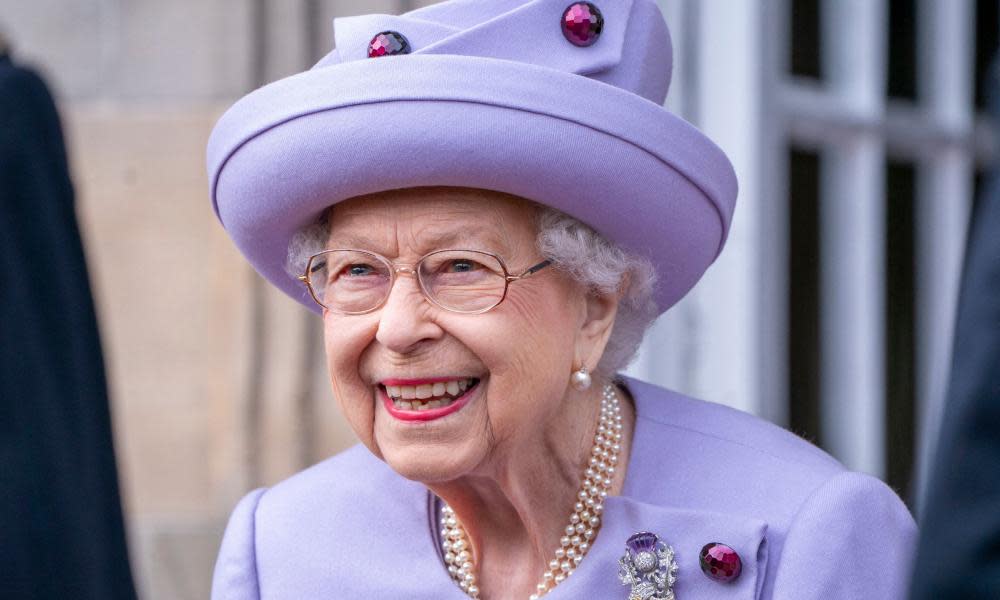Queen’s approval of laws must be more transparent, Scottish ministers told

Scottish ministers have been told to open up the opaque mechanism in which the Queen gives her approval to draft bills that affect her personal property and public powers.
Parliamentary authorities at Holyrood have instituted changes after a Guardian investigation revealed that proposed laws have almost certainly been secretly altered to secure the monarch’s approval.
The changes relate to a procedure known in Scotland as crown consent, in which the monarch is given early sight of proposed laws that could affect her public powers or privately held assets such as the Balmoral estate, so that she can consent to them.
Under the new transparency rules being introduced by Alison Johnstone, Holyrood’s presiding officer, ministers have been told that from September they must notify the Scottish parliament immediately whether a new bill needs the Queen’s consent, to give MSPs “the maximum opportunity” to question them.
At present, ministers can wait until draft legislation has gone through months of scrutiny in parliament before notifying MSPs at the last stage of the legislative process that the Queen has vetted the bill.
Critics across the UK have argued it is anti-democratic to allow a monarch to have early sight of draft bills and then to influence their contents to protect their interests, especially when elected politicians are kept in the dark about the nature and extent of her interventions.
Related: Revealed: how Prince Charles pressured ministers to change law to benefit his estate
The Queen’s representatives have maintained that the procedure is “purely formal” and is not used by the monarch to change the nature of draft bills. Ministers in England and Wales are also required to secure the Queen’s consent for bills deemed to affect her personally.
The new measures were announced at Holyrood after the Guardian published a Scottish government memo on Monday that disclosed it was “almost certain” that draft bills were changed before introduction at Holyrood to address the Queen’s concerns.
At least 67 Scottish bills, including those dealing with planning and property taxes, have been vetted by the monarch in the past two decades through this mechanism. The monarch is in Scotland this week to carry out a series of engagements.
Alex Cole-Hamilton, the leader of the Scottish Lib Dems, said the transparency changes did not go far enough, adding they would “tell us little about what changes have been made by the Scottish government at the request of the Queen’s lawyers before the bill arrives at parliament”.
The measures may put pressure on the Westminster parliament to open up the Queen’s consent mechanism to greater public scrutiny. Guardian research last year found more than 1,000 parliamentary acts had been vetted by the Queen or Prince Charles since the start of her reign.
Ross Greer, a Scottish Green party MSP and a republican, said the entire crown consent process should be scrapped. “The most common defence of Britain’s monarchy is that it is ceremonial, that it keeps out of politics, and is only consulted as a formality. As the latest revelations make clear, the reality is very different,” he said.
“This is a question of transparency and democracy. Legislative decisions are for the Scottish parliament and the people of Scotland, not an archaic, unelected and unaccountable institution with a long history of changing the law to suit its own interests.”
Thomas Adams, a specialist in constitutional law at the University of Oxford, said the Queen’s consent mechanism gave the monarch “power over legislation of the kind that anyone who wanted influence would design for themselves.
“Firstly it gives her access to information before the politicians even have the bill, and secondly she can potentially influence the contents because her consent is needed,” he said. “The question is about what needs to be done in order to get the Queen’s consent. And we just don’t know what is done to get that.”
The review by Johnstone of Holyrood’s rules was triggered by Guardian articles last summer that revealed the extent of the monarch’s vetting of Scottish bills.
Documents uncovered by the Scottish Liberal Democrats also showed the Queen’s lawyers had secretly lobbied Scottish ministers to change a draft law to exempt her private land from a major initiative to cut carbon emissions.
The exemption meant the Queen was the only private landowner in Scotland who was not required to facilitate the construction of pipelines to heat buildings using renewable energy.

 Yahoo Movies
Yahoo Movies 
